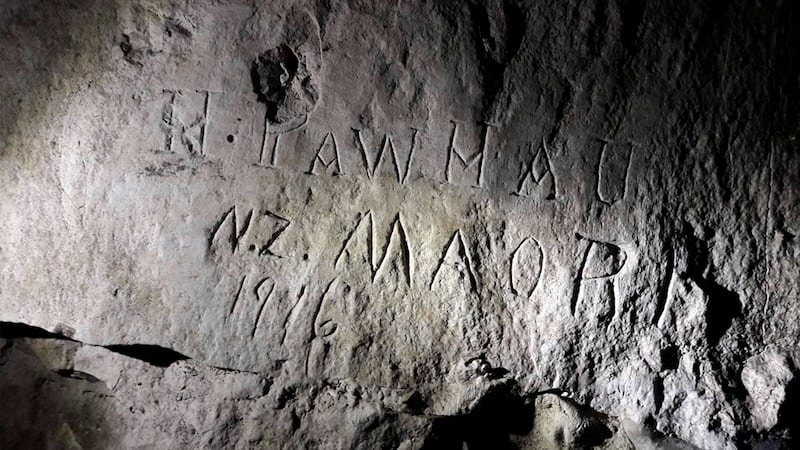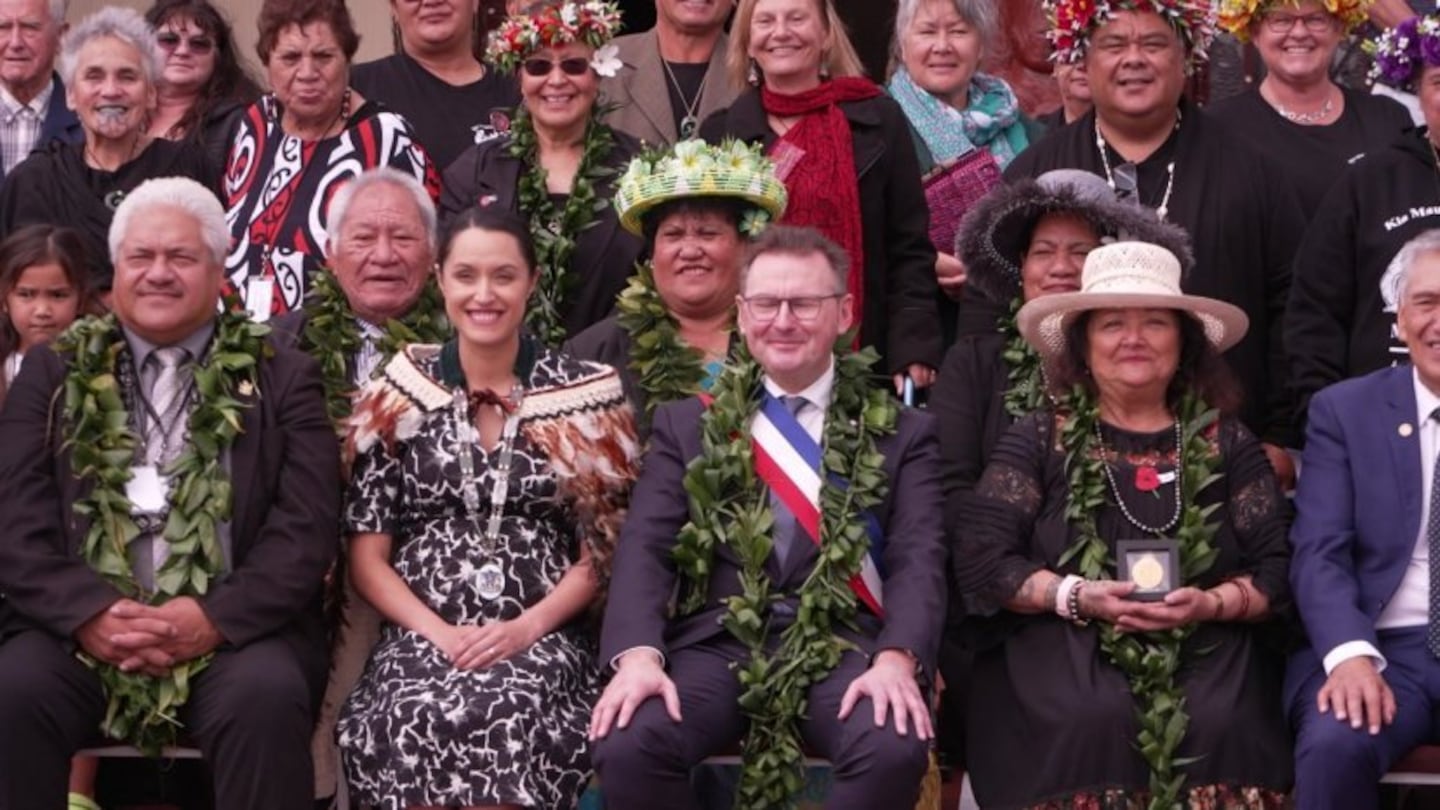A French delegation is visiting New Zealand for Anzac Day commemorations and was hosted by Te Arawa at Te Papaiouru marae in Rotorua today.
The French visitors are from Arras, a town in Northern France where members of the Pioneer Battalion helped build a system of underground tunnels during World War I.
Te Arawa kaiwhakahaere of the gathering, Joh Hurihanganui, was excited to host Arras mayor Frédéric Leturque for the first time, with the battalion descendants in Rotorua.
Franc and Aotearoa reconnect.
“Of the 43 soldiers, 40 were Māori, three were Rarotongan. The NZ Engineers Tunnelling Company was already in Arras digging the tunnels and our 43 men were sent down to assist, and they did a remarkable job,” Hurihanganui said.
Leturque said today’s connecting was important and celebrated the relationship between Arras and Aotearoa.
"We are here to say 'Merci' (thank you) from the population for the young people who engaged in the war in France. From their efforts we were liberated," Leturque said.

Cook Islands consul-general Keutekarakia Mataroa also looked forward to the Anzac parade next week as the Cooks celebrate the 500 Cook Island soldiers who were part of the New Zealand contingent in that war.
"But today is about those who helped the Māori Pioneer Battalion tunnellers under the city of Arras,” he said.
All descendants of the 43 received certificates for their ancestor’s tunnelling duties in the line of war.
In 1916, the 43 Māori Pioneer Battalion tunnellers dug 20 kilometres of tunnels that allowed the troops to get close to enemy trenches before emerging to charge them.
Angela Karini from Te Tai Rāwhiti attended, along with her whānau, on behalf of her tupuna Toihapi Karini. She retraced stories passed down that not only was the mahi strenuous and under harsh conditions but also the hardest part for him was leaving behind his friends to return home when he was discharged for being wounded by shrapnel.
“There was no support for post-traumatic stress back then. It was as if he had entered into another war,” Karini said.

Keta Te Ahuru from Uepōhatu ki Hikurangi and Ngāti Rangi ki Reporua was also with her whānau to celebrate and remember their ancestor who served in Arras, Robert Pāpu Walker. He was a lance corporal in World War 1.
“At the time they were in a state of sadness being far from home. Some of their inscriptions etched in the tunnels were farewell messages,” Te Ahuru said.
The Pioneer Battalion tunnellers inscribed mementos into the walls of the underground tunnels. The phrases left behind ranged from tribal sayings, colloquialisms and encouragement to prayers.
Today's gathering, discussed the writing, their significance, how they relate to today, and what messages they have left for the next generation.
Karini spoke about her ancestor writing his name and where he was from. “This is a sign to remember he was there at the time and their dedication to being there,” she said.
And Te Ahuru’s ancestor also wrote his name, identity, and his soldier number. “When I see his markings, I think 'that is me and this is the gift he has left for the next generations',” Te Ahuru said.
The French delegation will continue on to Rarotonga and will meet government officials, tribal leaders, and descendants of the Cook Island soldiers who served with the 43 Māori Pioneer Battalion.

